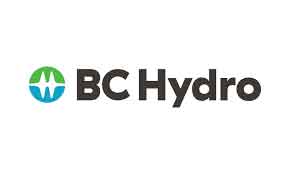Tampa Electric granted first base rate increase in 16 years
While the Commission must still make decisions regarding final rate structures, it is estimated that the average residential customer using 1,000 kilowatt-hours per month could realize a base rate increase of less than five dollars.
This increase will be more than offset by the companyÂ’s pending request to lower the fuel portion of its rates, which would be about a $13 per month decrease for a 1,000 kilowatt-hour customer. Both charges should take effect in May.
President Chuck Black said, “Although the company did not receive its entire request, we respect the Commission’s decision and will continue to work to provide our customers with the quality service they have come to know from Tampa Electric. We understand the challenging economic circumstances faced by our customers and are doing our best to minimize costs while safely and reliably delivering electricity.”
Under Florida law, a utilityÂ’s base rate includes the costs to build, maintain and operate the electrical system. The base rate includes the cost of generating plants, transmission and distribution lines and facilities necessary to serve customers and the opportunity to provide investors a reasonable return. The fuel charge primarily reflects the cost of fuel to produce electricity and is passed through to customers by Tampa Electric without mark-up or profit.
From 1993 through the end of 2009, Tampa Electric will have invested more than $3.4 billion in transmission, distribution and other facilities in order to provide environmentally responsible and reliable energy for its customers. During this same time, the company added more than 200,000 new customers and realized an increase in peak demand of over 50 percent.
In its decision, the FPSC approved Tampa ElectricÂ’s request for an energy efficiency-focused residential rate that offers a lower charge for the first 1,000 kilowatt-hours used each month. They also approved the companyÂ’s request for an adjustment to customer charge and service charge pricing. Under the new rates, the standard residential customer charge will increase from $8.50 per month to $10.50 per month.
Tampa Electric recognizes that its customers want to use energy wisely and the company offers residential and commercial customers many comprehensive energy-efficiency programs. Customer participation in the company’s energy-efficiency programs – established in 1979, prior to any state or federal requirements – has helped offset the need to generate enough power to serve 630,000 homes for one year.
The companyÂ’s residential energy-efficiency programs include Energy Planner, which enables residential participants to take advantage of near real-time prices for electricity through the use of a programmable thermostat, installed by Tampa Electric at no cost to the customer. During the programÂ’s three-year pilot period, Energy Planner helped participating customers save an average of one monthÂ’s electricity consumption annually on their electricity costs. With Tampa ElectricÂ’s Low-Income Weatherization Program, households that qualify receive free energy-saving items and upgrades to their homes.
Among energy-efficiency programs available to commercial customers, Tampa ElectricÂ’s Networked Demand Response option makes incentives available to businesses for reducing their energy usage during peak-demand times.
Related News

BC Hydro Rates to Rise by 3.75% Over Two Years
VANCOUVER - British Columbia's electricity rates will experience a 3.75% increase over the next two years, as confirmed by the provincial government on March 17, 2025. The announcement was made by Minister of Energy and Climate Solutions, Adrian Dix, who emphasized the decision's necessity for maintaining BC Hydro’s infrastructure while balancing affordability for residents.
For most households, the increase will amount to an additional $3.75 per month, based on an average BC Hydro bill of $100. While this may seem modest, the increase reflects a broader strategy to stabilize the utility's rates amidst economic challenges and ensure long-term energy security…





